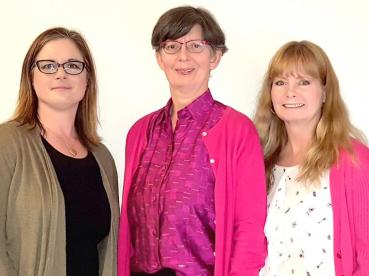- Managing your Practice
-
- Your Benefits
-

Introducing the ultimate Club MD experience
From work to play, and everything in between, we provide you with access to hundreds of deals from recognizable, best-in-class brands, elevating every facet of your life – from practice supports to entertainment, restaurants, electronics, travel, health and wellness, and more. Your Club MD membership ensures that these deals are exclusive to you, eliminating the need to search or negotiate.
Welcome to the ultimate Club MD experience. Your membership, your choices, your journey.
-
- Advocacy & Policy
-
- Collaboration
- News & Events
-

Stay Informed
Stay up to date with important information that impacts the profession and your practice. Doctors of BC provides a range of newsletters that target areas of interest to you.
Subscribe to the President's Letter
Subscribe to Newsletters
-
- About Us
-
New physician toolkit supports violence prevention
January 26, 2018
News
Physicians and health care staff are dedicated to providing the best care possible to all people. Unfortunately, sometimes they face violence from the very people they are trying to help.
This is a challenging part of health care - particularly in mental health, substance use, medical and emergency settings – physicians and health care staff just trying to do their job without being hurt themselves.

Training and prevention are key to help improve the situation for both patients and health care providers. This is why Dr Laura Chapman undertook a Quality and Innovation project in 2015 to address this issue.
Dr Chapman explains, “We heard about the challenges physicians faced around violence and thought - we can help them”. Help came in the form of a new toolkit designed for a clinical setting and aimed specifically to help physicians and patients. The Improving Risk Assessment and Management of Violence was recently launched in Island Health.
According to a recent survey, nearly all clinicians have experienced verbal abuse and 40% have been physically assaulted. However, only 30% reported participating in adequate training in how to cope with workplace violence.
“As compassionate physicians, we are committed to helping our patients and one of the ways we can do that is to equip our physicians with the tools they need to keep the workplace safe. There are many factors involved in workplace violence, but this initiative is a key step towards addressing our collective concerns.” Dr. Matt Chow, psychiatrist and SSC Co-chair, Doctors of BC.
Funded by the Specialist Services Committee, the team worked with physicians and Island Health staff to develop the toolkit, that will augment and extend existing materials on violence prevention.
“The toolkit will broaden the perspective of the existing materials” said Dr Chapman, “physicians and patients will benefit from more effective, meaningful assessments about behaviour to prevent violence”.
The toolkit is available as an E-learning course accredited for family physicians and specialists and can be accessed at no charge at: https://ubccpd.ca/course/iramv




